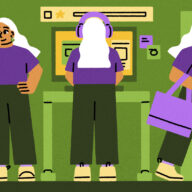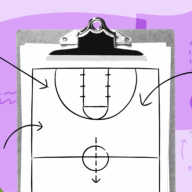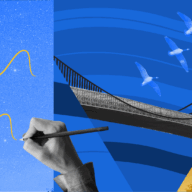A cricket match played on April 18th 2008 between two city-based teams in India marks a historic moment in sports. It was the beginning of the Indian Premier League (IPL), a radically new tournament within the shortest format of cricket. Spearheaded by a flamboyant businessman, the IPL was to become for cricket what the National Football League (NFL) is to American football: an exciting prime-time entertainment for a new, global fanbase. And at worked – at first.
Then the IPL’s founder is thrown out, scandal rocks the league, and even diehard fans turn away from their beloved sport. In this episode, host Gabriela Cowperthwaite takes you back to the exciting origins of the league and behind the scenes to how the IPL rallies to save itself. Learn how a reformed league with a newly-appointed representative team restored transparency to the game, and how rival cricket boards became allies to stage a tournament during an even bigger crisis: the global pandemic. Listen to exciting analysis from Prakash Wakankar, a cricket commentator with the BBC, and hear from Simon Hughes, former English cricketer and co-author of “A New Innings,” a book about the IPL. Also hear from “A New Innings” co-author Manoj Badale, lead owner of the IPL team Rajasthan Royals, and from Shane Watson, the former Aussie cricketer and founder of T20 Stars. Plus, Rehmatullah Sheikh, Teamistry’s Story Producer and a massive cricket fan, joins in to talk about his experience with the IPL and the reforms that helped it bounce back from disgrace.
Transcript
It’s April, 2008, and a new sports league is about to begin: the IPL or the Indian Premier League. Excitement has been bubbling below the surface for weeks. Fans have witnessed a raft of things new to Indian sport. Like players being bid on by different teams, as if they were fine art. Or the antics of a flamboyant founder. But what they’re looking forward to most, of course, are the actual games, in a whole new format of the country’s favourite sport: cricket.
Prakash Wakankar:
The format of the IPL as it was coming through, there were lots of unanswered questions. My name’s Prakash Wakankar. The passion that drives me is cricket. I often say, work and job puts food on the table, but the soul feeds off cricket.
Prakash is a bit of a purist. He’s a cricket-analyst on a BBC radio show dedicated to the traditional format of cricket. The one where a single game goes on for five days. It even has lunch and tea breaks scheduled in. But the IPL? It’s the “T-20 format”—a snack in comparison. It usually lasts just three hours per game. The plan is for a season of the IPL to last for just six weeks. And you’re not playing for your country, like in the traditional format. You’re playing for a franchise that’s based in an Indian city, like with most American sports. So Prakash had his doubts.
Prakash Wakankar:
Would you give off your best? Would the players really be striving for the same amount of success individually and collectively as they would when they were wearing their national jerseys? All these kinds of questions at one level. And then, as the story started coming out as to what else it would involve, from cheerleaders to after parties to the media hype around it there was a certain amount of skepticism, I must confess, in 2008.
It’s a Friday night, which means prime-time tv-viewing in India. Prakash has had to plead with his wife for the remote; she wanted to watch a film instead. The first match is between Bangalore Royal Challengers and Kolkata Knight Riders. One team is owned by the maker of a popular alcohol, the other by Bollywood star Shah Rukh Khan. The stadium in Bangalore is packed with 40,000 people. The cricket begins, and Prakash’s eyes light up.
Prakash Wakankar:
It felt like I was watching a thriller in a cinema theater. The atmosphere, I don’t think I’ve ever witnessed anything like that even from a distance on a screen where you had literally thousands of people and it was just phenomenal. The energy, the razzmatazz, the color, the way the ground was decked up. I have to confess, cheerleaders, pompoms, features on television, the cameras, the commentators, the jostling and of course, the performance of the cricketers. It was all just fantastic.
But while launching the league challenged the idea of what cricket could be in India, what lay ahead was far more daunting. A leader disgraced and dismissed. Scandals that would cause an exodus of fans and threaten the very existence of the IPL. Challenges that would require a team of leaders to put aside their individual interests to save the league. Including the biggest challenge the league had ever faced: a worldwide pandemic.
Prakash Wakankar:
Cricket’s all stopped. All of that was up in the air and I think everybody was just sitting there, waiting to see what was going to unfold. As we all know now, it hasn’t been pretty since.
I’m Gabriela Cowperthwaite and this is Teamistry — an original podcast from Atlassian, makers of teamwork software like Jira, Confluence and Trello. This show is all about the chemistry of teams – and how some teams can change entire organizations and even whole industries with new ideas and unconventional ways of working.
The Indian Premier League begins not with a team but as the brainchild of one man – Lalit Modi. Born in India and educated in the United States, he toyed with the idea of a city-based cricket league for almost a decade. He had no background in cricket; he’d studied electrical engineering and business in the U.S. But he had a knack for original ideas. This is Simon Hughes, a former English cricketer and co-author of “A New Innings,” a book about the IPL.
Simon Hughes:
How he came by the idea of the IPL really was working in America, working for Disney as a marketing executive, and seeing the way that American sport, college sport and obviously franchise sport, was so successful at commanding the attention of the population on certain nights. He realized the importance of putting on sport when people could watch, so in the evening effectively.
In 2005, Modi had returned to India. He became the Vice President of the body that governs cricket in the country, the BCCI. Football may be a fixture in America, soccer may be adored in Europe and South America. But cricket in India? It’s like a religion. The traditional form of cricket is sacred and honoured by a core of fans. But Modi [MOH-dee] sees an opportunity for cricket to grow even more and bring in a bigger fanbase. At the time, an international version of T20 is gaining in popularity around the cricketing world. It’s short, snappy and as opposed to the male-dominated audiences of traditional cricket, you see a lot more families and women at T20 matches. In fact, in 2007, the Indian national team wins the first-ever T20 World Cup. Modi sees this as a perfect time to cast traditions aside and repackage cricket in this new league.
Simon Hughes:
He wanted there to be an after-match party, he wanted there to be some dancing and some entertainment after matches as well, for the players and for their entourages, to keep the entertainment buzz going about tournament. The parties were almost initially even more exciting than the matches, and players talked of barely going to bed and things like that.
The idea is that the IPL audience wouldn’t just sit in the stands and watch a game. Instead, they’d be consumed by an atmosphere that’s super-charged with music and performances by Bollywood celebrities. The fans would be on their feet – even if they don’t follow the sport. Modi has a knack for getting the IPL front-page coverage even before any cricket is played. For instance, he comes up with the idea that all the eight franchises have to bid for cricketers at an auction—like they’re pieces of art. Simon describes one such auction at a plush ballroom of a sea-front hotel in Mumbai.
Simon Hughes:
Some of the sums that fairly moderate cricketers had been bought for were just astronomical. It was a bonanza really. Some guys who probably earned, I don’t know, $150,000 a year were suddenly being bought for 800,000 for six weeks’ work.
People were used to seeing BCCI executives as demure bureaucrats who worked behind the scenes. But Modi was different. He was flamboyant and brash, even if he rubbed people the wrong way.
Simon Hughes:
He’s a quite hyperactive sort of person. Not necessarily physically but verbally. He’s got a million things going on in his head all the time. He’s like an impresario really. He’s the ringmaster. He ran everything.
Prakash Wakankar:
In many ways, he was the first executive officer of the BCCI
That’s Prakash Wakankar again, the analyst whose soul is nourished by cricket.
Prakash Wakankar:
He got things done, sometimes maybe pushing a few buttons that some others may choose not to, but somebody who brought a dream to reality. Created the IPL, went out and did it almost in a dictatorial form. It was take it or leave it kind of thing from him.
Modi’s leadership style may have gotten things going, but it is ultimately unsustainable, even destabilizing, and will lead to the league’s first major setback. But that’s still to come. For now, the inaugural season of the IPL is off to a flying start.
Prakash Wakankar:
The IPL has its own little signature tune. It’s something like <mimics signature tune> It’s got a unique shrill horn which is absolutely ingrained now in the psyche of the Indian public as the clarion call to say, something big has started, go watch it wherever you may be. It was almost a classic consumer product launch where you had everything that was need to make it work. The product itself, the ingredients, the variance if you will, flavors, packaging, the support in terms of media, public relations, influencers, celebrities. In many ways, it was the perfect product launch. I think Steve Jobs would have been proud of it.
As often happens, though, the one, lone, inspired but thorny leader falls from grace.
News headline: “Breaking news this evening: IPL chairman Lalit Modi has been suspended by Indian cricket board.”
At the end of 2010, just two years after the success of the first season of the IPL, the cricket governing body in India accuses Lalit Modi of financial irregularities and misconduct. Here’s Simon Hughes
Simon Hughes:
There were rumors and I think they were proved of some financial impropriety, of perhaps rather favoring certain companies, broadcasters. There was stuff he did which was not entirely above board. He just became a bit too powerful, a bit too big for his boots, and didn’t really delegate anything.
Modi’s removal leaves a vacuum inside the IPL. And not just a leadership vacuum when it comes to new ideas and continuing the league’s track record of innovation. Who will come forward to insure the league doesn’t slide deeper into scandal?
Without this leadership, a bigger blow to the IPL comes in 2013. Three players from the Rajasthan Royals team are accused of “spot-fixing.” That’s when someone deliberately performs poorly to influence the outcome of a certain moment in the game. It’s usually done in collusion with illegal betters and bookies.
Simon Hughes:
I remember one famous player actually saying he watched a particular game on telly and he said, “That was weird. That bowler’s quite steady and consistent, and suddenly he’s bowled those two terrible overs, I couldn’t figure out why.” Well of course the reason was he was paid to do it. So, it was a very sad period.
This becomes a huge scandal. Footage of what’s believed to be the exact moment in the match when the cheating took place is all over the news. Shane Watson, an Australian cricketer who started his IPL career with the Royals, was on the field playing alongside those same team members. He was dumbfounded.
Shane Watson:
Well, gosh, I’d never experienced anything like that before. So to be involved in a team where you play a game that night, the next morning you wake up, and three of your teammates who played in the previous game had been taken by the police, and were being interrogated for things that had happened during that tournament in regards to some alleged spot fixing. So that’s when everyone starts to look over their shoulder, starts to question everything that’s been happening.
Prakash Wakankar:
That pushes you away from the sport. You don’t want to watch it, you don’t want to talk about it. You don’t want to read about it. And you know that any sport in the world is sustained and owned ultimately by the fans. So if the fans go away, there is no stage for its performer to perform.
Some fans did go away. And we know this because someone very close to this show had that experience.
Rehmatullah Sheikh: Hello, hello, check 1-2.
This is Rehmatullah Sheikh. He’s Teamistry’s Story Producer, and a cricket fan. He joined us from his home in Dubai.
So Rehmat, we just heard from Prakash about the impact that these controversies had on the IPL. What was it like for you – as a cricket lover and someone who followed the IPL?
Rehmatullah Sheikh: I remember the exact moment I stopped watching the IPL. Can I share that with you?
Yea yea, go ahead.
Rehmatullah: So, Rajasthan Royals was my favourite team. I loved them, because I loved the captain of that team at the time: Rahul Dravid. He was a mentor I never had. He’s this hard-working, extremely professional, principled cricketer who had a spotless record on and off the field. So when these spot-fixing allegations surface, Rahul Dravid, being the captain of the team, is amongst the first people to be called into questioning. I thought to myself, at the time: “okay, You DO NOT sully the reputation of my hero Rahul Dravid. He’s part of my childhood!” And I decided…I don’t want to have anything to do with a league that drags my hero into the mud – for a crime he didn’t commit. And I stopped watching IPL altogether. That was it.
And what do you remember about the league from that point on? I mean, if there were a lot of fans who walked away, how did this impact them?
Rehmatullah Sheikh: Well, the league actually moved on without people like me. And much of it is because of this rebuilding exercise that was done at the top. This spot-fixing controversy and another scandal involving a shareowner from Rajasthan Royals who was accused of illegal betting, they were a rude awakening that something wasn’t right with the league. It prompted the Supreme Court of India — the country’s highest court — to appoint a special committee. And that committee recommended that cricket in India generally, and IPL specifically, needed to be more transparent and governance needed to be improved. The main way they did this was to introduce a separate governing body for the IPL. It was to be made up of members from the BCCI, representatives of some of the IPL franchises and someone from the players association. And those representatives of IPL teams would have to rotate every year, to ensure better representation. This immediately led to a cultural shift. Instead of being led by a single leader which made it prone to mismanagement in the past, the IPL is now led by a representative team. A team that has the best interests for the league. And this team wanted to restore transparency to IPL—have more emphasis on cricket and less on the after-parties and glitz and glamour.
Manoj Badale:
I think there was perhaps a rebalancing post Lalit’s departure, of the emphasis being on the cricket.
This is Manoj Badale. He’s the lead owner of the Rajasthan Royals and he co-wrote the book “A New Innings” with Simon Hughes. Here’s what he learned from the changes that started taking root in the IPL after 2015.
Manoj Badale:
The lessons in leadership and the lessons in teamwork are the best, and most sustainable organizations have leadership teams where there is no one particular group think, there is no one particular dominant prevailing view, and where there is cognitive diversity. So, one of the things that I think is really important if you’re going to build resilience and sustainability into your governance and leadership structures, is to have opinions drawn from a diverse group.
And this group knew that for the league to survive, well, it needed some rules. Rules that meant the IPL itself would always come first over any one cricket team’s interests, as Prakash explains.
Prakash Wakankar:
If you look at the anti corruption units that have been set up, I dare say that process is today, much more robust than even in international cricket. There’s monitoring of player behavior, there’s monitoring of visitors. There’s obviously a lot of visual checks in place inside the dressing rooms, communication, constant awareness classes. There’s a lot of education, there’s a lot of preventative measures, there’s a lot of policing. That automatically then, brings the sense that we’re in this together and none of us individually should be trying anything stupid which could jeopardize the whole ship. All of that I think restored credibility.
Prakash believes that having representatives from all stakeholder groups agreeing to a new set of rules helped the club representatives inside the new IPL governing body go from on-field enemies to off-field allies.
Prakash Wakankar:
The interdependency amongst the owners on one side, balanced with the competitiveness and the urge to win, I think, did get much sober. It wasn’t win at all costs anymore. I think there was a sense of understanding that together we can make this much bigger and if we make it much bigger, each of us, given our proportionate shares, is also going to get both economically and otherwise rewarded.
After all the turmoil, instead of falling apart, the IPLbecomes even more popular. With the new rules in place and the team owners working together, as partners, they can achieve economies of scale that they couldn’t have on their own. For example, the IPL leadership team can take advantage of a digital revolution that is gripping India in 2015: everyone is connecting online through their smartphones, which in India are sometimes called handsets. Here’s Simon Hughes.
Simon Hughes:
Suddenly in around 2015 the data prices dropped massively from being some of the most expensive in the world to being some of the cheapest in the world. And so now suddenly everybody can afford not only a phone but a smartphone and they could download the games and the digital coverage onto them.
Prakash Wakankar:
By rolling out and practically giving out free handsets to literally millions and millions, hundreds of millions, which allowed them to be able to stream this live. The ordinary corner store owner could have that phone propped up on the side of his counter and follow the game even while he was serving a customer, which was otherwise not possible.
Riding on this digital wave, the IPL leadership team decides to add multiple languages to its broadcasts, tapping into the multitude of dialects in India. They also introduce female broadcasters and analysts. The result: IPL’s unique TV viewership numbers vault from around 200 million in 2015 to over 450 million in 2019. The league’s value doubles to almost seven billion dollars.
Prakash Wakankar
It was all just fantastic and many of us wondered whether it could sustain itself.
It’s March 2020, and the 12th season of the IPL is scheduled to be held in a month. But the most-awaited event in the country is completely derailed by a global pandemic. A decision is made to postpone the IPL. Here’s Simon Hughes.
Simon Hughes:
I think it was the first time for probably about 50 years that no cricket was played for a month anywhere in the world. It was obviously a very uncertain time, this had just suddenly hit us and nobody knew what was the way out and what was the future for life, never mind sport.
This doesn’t just affect the players and the league owners. As Prakash explains, the IPL now fuels an entire economic system—and many households in India suffer without the IPL.
Prakash Wakankar:
If you just look at one venue and you look at the ground staff, that in itself is probably about 40 to 50 families being impacted. Think of the vendors that sell food and drink inside the stadium. Think of the policemen who probably get paid a little extra for what they do. The entire shebang of this carnival called the IPL, which must run into literally thousands and thousands of people. All of that must have been very scary.
Manoj Badale:
So, I was particularly anxious about, and to some extent negative about the ability for the IPL to take place in March, April.
That’s Manoj again. He’s especially anxious because the IPL takes place over six intense weeks of games. If the 2020 season is to be played at all, it needs to be in sync with the calendars of at least five cricketing nations, to ensure their players aren’t tied up elsewhere. There are far too many moving parts to this league. It’s now summer of 2020 and if the IPL doesn’t happen soon, it may just never happen this year. The team of club owners get together on a series of virtual calls with the BCCI. They all bat around a variety of ideas on what to do. The league needs to be saved, this time from its biggest threat.
Manoj Badale:
I think some of the owners’ calls that took place that sort of came up with, where there was collaborative discussion about ideas, about where there might be windows in the calendar, about geographies where it could be played, about different approaches that could be taken.
There’s someone else on these calls – a very unlikely ally. The English Cricket Board, or the ECB. In the past, the ECB has had a hostile attitude towards the IPL. It discouraged its players from participating in the lucrative league, mostly because of a conflicting domestic tournament in the U.K. But in 2020, the ECB has something that the IPL needs: the experience to organize cricket in a “biosecure bubble.” In June that year, the ECB hosted West Indies in a series of live matches that were held in empty stadiums. The concept of training and playing in a “bubble” felt like an experiment. But it all worked out without an incident, and the ECB became the first-ever body to stage live cricket in the pandemic.
When the new IPL governing body reached out to the ECB for help, they agreed. Because this time, the IPL team owners were at the table. You see, in the past, especially with Modi running the show, it was a group of BCCI lifelong bureaucrats the ECB dealt with. Which meant that sometimes there were competing interests at play. But now, with everyone walking into the dark unknown, it helped that the ECB felt confident they could work productively with the IPL itself.
Manoj Badale:
There was extensive collaboration between the cricket boards, to share best practice on the maintaining of these bio-secure bubbles from best practice manuals, to operations manuals, to which vendors to use for which type of test. I don’t believe without that collaboration, without that information sharing, the tournament would have taken place.
And that’s what is key here, as Manoj explains, that while the ECB shared best practices, the IPL leadership team would still have to figure out how to do it for themselves. With a few years of working as one team under their belt, they were set up to support one another when they needed it most.
Manoj Badale:
And then the operational complexity of maintaining that hotel security, and I’m talking about bio-security, it takes daily meetings, daily testing, incredible commitments and efforts by the support team. And then of course, there are protocols that get breached, and so what happens when a protocol gets breached? What happens when there’s an accidental breach of bio-security? Teamwork, knowledge sharing, collaboration was fundamental.
With some thorough planning to keep the players and staff safe, the IPL can now be revived. A new schedule is set: September 2020. But the league needs a place to play, a place with low Covid cases and the infrastructure to host all these teams and games. They chose the United Arab Emirates. The cities of Dubai, Abu Dhabi and Sharjah have stadiums and are close enough to maintain a bio-bubble for the players.
Shane Watson, the former Australian cricketer, packs his kit bag to fly out of Sydney to Dubai. He’s been an athlete for two decades, but even he struggles to adapt to the new normal of training in a bubble. Besides, the occasion is a little more somber for him: this is going to be his last international appearance.
Shane Watson:
The new world just was difficult. More than anything, you’re just not built to be so isolated. The isolation and knowing that my family couldn’t come as well, and knowing that it was going to be my last tournament that I was ever going to play. Just all those factors came together. Where we stayed was a beautiful hotel in Dubai, but we’re only allowed on a couple of floors that were just the players.
It’s September 19, 2020. After a herculean effort behind the scenes to organize IPL 2020, the first match is underway. It’s Mumbai Indians vs Chennai Superkings, Shane’s new team. As he walks into the field and looks around, it’s all a bit eerie. Stands that quaked with the screams of fans are empty. The plumes of celebratory smoke—gone. Cheerleaders? None. But in the bleak times of COVID, isolated fans at home still have something to look forward to: cricket.
Shane’s been battling isolation up until this point. But now, it’s a different kind of battle. With a bat in his hand, he braces for the bowler charging his way. Shane swings his bat — and bam!
Commentator: “WOW! What a cracking six from Shane Watson.”
It feels like old times again.
Shane Watson:
The thing that I found just shut out that isolation that you feel when there’s no one in a ground, was the crowd noise through the speakers. And I think such a simple touch just provided the intensity for me that you needed. Just to be able to make the players feel like there’s that environment, that intensity in the atmosphere.
Fans aren’t just heard, they’re also seen. The league introduces other innovations, like massive digital screens in the stadium that show fans wearing jerseys and cheering for their teams in real time — from their living rooms. It’s as if the stadium entered their homes; IPL entered their homes. It also managed to bring back some old fans. Our story producer Rehmatullah, who stopped watching the IPL after 2015, has had a change of heart.
Rehmatullah Sheikh:
So I went from boycotting the IPL, to now waking up at 4:30 every morning to watch an IPL match. And I was in Vancouver at the time so that’s when the game started. All my senses were now feeding off pure, live cricket – uninterrupted. No scandals hanging over these games. They’d spent the past few years working together to reform the league, make it more transparent, and redistribute control amongst representatives who as a collective cared about the league and not individual pursuits. And talking of the matches themselves – because there’s literally no one in the crowd the camera is instead focussing on these really small details like the expressions of a cricketer, the reactions from their coaches. And the QUALITY of cricket oh my God. The number of times, Gabriela, the number of times matches went down to the wire and I was literally on the edge of my seat. There, in that moment, I got my childhood back. It took me back to the living room of my home in Dubai where I didn’t just watch cricket. I FELT it. IPL 2020 gave me something to look forward to, in a very dark period of our lives.
Manoj, the lead owner of a franchise with serious stakes in this tournament, watched from his home in the U.K. as all the backend teamwork bore fruit.
Manoj Badale:
I think there was extensive informal knowledge sharing between teams and franchises. There was extensive knowledge sharing between hotels and stadia. Just the actual flawless staging of a tournament that brought so much joy to India, at a time when big parts of India were in lockdown and big parts of the world were in lockdown. For me, IPL 2020 was an exemplar in what happens when you get effective collaboration, and what happens when boards and teams work together.
The success of the IPL gave momentum to the creation of other sports leagues in India: the Premier Badminton League and the Indian Super League in soccer – to name just two. But what’s remarkable is how IPL’s success has reverberated outside its national boundaries. In 2008, the Indian Premier League was the first international cricket league Shane played for. But it hasn’t been the only one throughout his career.
Shane Watson:
Even with the Pakistan Super League, to see how that has been able to really galvanize Pakistan cricket in a way. The Australian Big Bash, how that was able to grow as a domestic tournament was mind blowing. And the IPL was the absolute catalyst for all those things to happen. So domestic cricket commercially is now, is a lot more safer because the example the IPL created, and every cricket nation around the world is just trying to emulate that
The IPL has transformed how you market cricket to the masses. It’s also proven that there’s another model of rivalry—where you compete on the big stage, but collaborate behind the scenes.
Prakash Wakankar:
If people choose to work together and with each other as opposed to against each other, even in a competitive environment like sport where ultimately you bandy together to get it set up and then go out and box the living daylights out of each other to try and win on the night. I think it just shows the wonderful thing that sport can be.
And with this, what you achieve is an experience that doesn’t just have ripple effects within an industry, but across a country of over a billion people. Here’s Prakash again.
Prakash Wakankar:
The advent of the IPL and the resurgence of India as a nation have moved parallelly. The assertiveness of India on the international stage in terms of how India has seen itself and herself, the rightful place that India is demanding on the international stage, the social fabric of India in terms of dreams and reality, the fact that you no longer had to be born into a privileged setting or living in a city amongst the top five or seven for you to really make your mark in life through your own chosen endeavor. That is the dramatic change that the IPL led and is now spread into a movement which I sincerely hope will continue for long because what any nation needs is confidence in itself, it’s ability and that of its citizens.
Now, the story of how the pandemic has affected the Indian Premier League doesn’t end here. Teamistry Producer Rehmatullah Sheikh has joined us again to tell us about it.
Rehmatullah Sheikh:
So, when we interviewed our guests in April, the 2021 season of IPL was in full flow. It was being held in India. I was watching it too on television. But at the time of writing this episode, everything changed. As we speak, India is going through a second wave of COVID that’s way worse than what we saw last year – the pandemic has ravaged its healthcare system. The number of cases and the mortality rate – the country is setting grim world records. And the IPL was taking place within this environment with all the biosecure precautions and protocols. But there were a lot of criticisms against the IPL – that it was not in the best interest of anyone to stage a tournament.
So, the idea we explored in this episode that IPL last year was providing entertainment to people who are under lockdown….that sentiment doesn’t hold up as much this year?
Rehmatullah Sheikh:
Exactly. And then there came a breaking point. Some of the players and staff tested positive for COVID on April 30th. Which meant the bio-bubble had been breached. The match that day got cancelled, and in a couple of days it was announced that the league is indefinitely postponed.
Oh, I see. So this time, the bio bubble didn’t work.
Rehmatullah Sheikh:
Yep. And, as the team that produces Teamistry, I think it’s important for our listeners to know about this development. This episode is about the journey of the IPL and the team that saved it and helped it thrive. But as a producer, and perhaps as an Indian who’s seeing those harrowing stories coming out of the second wave, we want our listeners to know that although the episode we put together ends in 2020 … there’s still a lot happening. And, I guess, it’s even more important for us to remember the same lessons of teamwork and unity that we learned last year. That we’re all in this together, and we have to continue to persevere…
Thank you, Rehmatullah. Stay safe.









































